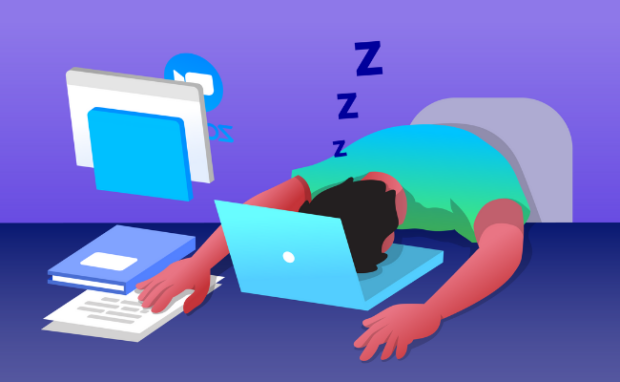Zoom fatigue: Video conferencing harms heart and brain
Are you feeling tired after your recent online class or meeting? Scientists say they found a connection between video conferencing in educational settings and fatigue-related physical symptoms. They discovered brain waves and heart rates indicated a person feels exhausted during screen time.
Modern schools and colleges have integrated online conferencing as part of their curriculums. On one hand, it has enabled classes to resume despite unexpected natural disasters like floods and earthquakes. On the other, it has given rise to unprecedented problems like Zoom fatigue. Thus, we must mitigate these issues to safeguard student well-being.
This article will discuss how researchers observed Zoom fatigue in people. Later, I will show the brighter side of online classes by covering their benefits.
How did scientists study Zoom fatigue?

René Riedl, Kyriaki Kostoglou, Selina C. Wriessnegger, and Gernot R. Müller-Putz have noticed people report getting tired after using video conferencing tools. However, we have not gathered evidence to prove that Zoom, Microsoft Teams, and similar apps can cause exhaustion.
That is why they conducted a study involving 35 students from the Graz University of Technology, Austria. They divided the respondents into two groups.
The first had 18 people who participated in a 50-minute engineering lecture via online class for a week and then face-to-face for another. Then, the remaining 17 went through the face-to-face classes first and then attended the video conferencing courses.
Meanwhile, the researchers monitored them with electrocardiogram (ECG) and electroencephalogram (EEG) devices that recorded their brain and heart rhythms. Also, they asked participants to answer surveys regarding their mood and fatigue levels.
The scientists looked for physical changes related to mental fatigue. These included specific brain waves, reduced heart rate, and signs the nervous system might be compensating for increasing exhaustion during the class.
The researchers found “notable” differences between the face-to-face and online groups. The students’ fatigue rose over the course of their video conferencing session.
You may also like: Escape Zoom meetings with this tool
Their brain activity indicated they struggled to pay attention. Moreover, the participants’ moods fluctuated. In-person volunteers felt livelier and happier, and the online participants said they felt tired, sleepy, and “fed up.”
As a result, the researchers concluded their findings proved the physical toll of video conferencing or “Zoom fatigue.” More importantly, they suggested online meeting tools “should be considered as a complement to face-to-face interaction, but not as a substitute.”
The scientists also recommended further research to study the effects of online classes on other parts of the brain. Moreover, they want to repeat the study in homes and business settings to further understand the effects.
What are the benefits of online learning?

Online classes still have positive effects despite the Zoom fatigue study. However, there are benefits to learning through video conferencing:
- Convenience: Its primary advantage is that it lets you learn wherever you are. For example, you could study in your favorite cafe to enjoy your favorite brew.
- Time management: You may save money and time since you won’t have to commute or drive to school. Just pop open the computer and let the class begin. This may give you more time for other aspects of your life.
- Access to resources: Back then, you had to look for books in your school’s library for information. Nowadays, you can access all those school resources from the comfort of your home.
- Career advancement: This may help adults expand their careers despite working full-time jobs. They often do not have a flexible schedule that lets them attend face-to-face classes. Meanwhile, they could go to an online college during their days off.
You may also like: More schools promote learning with ChatGPT
Conclusion
Researchers found evidence that people do experience “Zoom fatigue” during online classes and meetings. They discovered people became more irritable and tired during those sessions.
They also observed people exhibiting brain waves and heart rhythms indicating fatigue. However, the scientists suggested further research to verify their findings.
Learn more about the Zoom fatigue study on the Scientific Reports website. Moreover, check out the latest digital tips and trends at Inquirer Tech.